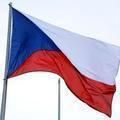Mnichovská dohoda a druhá světová válka, 1938–1945, část 1
Münchener|Abkommen|||||
Das Münchner Abkommen und der Zweite Weltkrieg, 1938-1945, Teil 1
The Munich Agreement and the Second World War, 1938-1945, Part 1
El Acuerdo de Múnich y la Segunda Guerra Mundial, 1938-1945, 1ª parte
L'accordo di Monaco e la seconda guerra mondiale, 1938-1945, parte 1
Het Verdrag van München en de Tweede Wereldoorlog, 1938-1945, deel 1
Мюнхенское соглашение и Вторая мировая война, 1938-1945, часть 1
Мюнхенська угода і Друга світова війна, 1938-1945, частина 1
Když byla československá politická reprezentace přinucena přijmout Mnichovskou dohodu podepsanou 29. září 1938, byl to konec předválečné RČS, tzv. První republiky.
|||||gezwungen||Münchener|Vereinbarung|unterzeichnete|||||vor dem Krieg||||
|||||forçada a||Acordo de Munique||assinada em|setembro||||antes da guerra||||
When the Czechoslovak political representation was forced to accept the Munich Agreement signed on September 29, 1938, it was the end of the pre-war RČS,
Němci osídlené Sudety, byly o den později, 30. září 1938, postoupeny Třetí říši a východní část československého Těšínska (kde se 35 % obyvatel hlásilo k polské a 56 % obyvatel k české národnosti)[5] Polsku.
|besiedelte|||||||abgetreten|||||||Těšín||||sich zugehörig fühlte||||||||
|||||||septiembre||||||||||||||||||||
|оселені|||||||||Рейху|||||||||||||||||
||||||||cedidas||Reich|||||Těšínsko|||da população|se identificava||||habitantes||||
Das deutsch besiedelte Sudetenland wurde einen Tag später, am 30. September 1938, an das Dritte Reich abgetreten, der östliche Teil des tschechoslowakischen Teschen (wo sich 35 % der Bevölkerung zur polnischen und 56 % zur tschechischen Nationalität bekannten)[5] an Polen.
The Germans inhabited the Sudetenland, a day later, on September 30, 1938, they were ceded to the Third Reich and the eastern part of the Czechoslovak Cieszyn region (where 35% of the population declared themselves Polish and 56% said Czech nationality) [5] Poland.
Následně byla po První vídeňské arbitráži Maďarsku odstoupena Maďary osídlená území na jihu Slovenska a Podkarpatské Rusi.
||||Wiener|Arbitrage||abgetreten|den Ungarn|besiedeltes|||||||
||||Conferência de Viena|arbitragem||cedida||território habitado|||||||
Nach dem Ersten Wiener Schiedsspruch wurden die ungarisch besiedelten Gebiete in der Südslowakei und der Unterkarpaten-Rus an Ungarn abgetreten.
The Germans inhabited the Sudetenland, the Third Reich and the eastern part of the Czechoslovak Těšínsko (where 35% of the population reported to the Polish and 56% of the population to the Czech nationality) [5] were transferred a day later, on September 30, 1938.
Okleštěné Československo existovalo jen krátce, neboť 14. března 1939 Slovensko vyhlásilo samostatnost a jako Slovenská republika se stalo satelitem hitlerovského Německa.
Das verkleinerte||||||||verkündete||||||||Satelit||
Оклещене||||||||||||||||сателітом||
Checoslováquia reduzida||||||de março||||||||||||
Die eingekesselte Tschechoslowakei existierte nur kurze Zeit, da die Slowakei am 14. März 1939 ihre Unabhängigkeit erklärte und als Slowakische Republik ein Satellit von Hitlerdeutschland wurde.
Truncated Czechoslovakia existed only briefly, as on March 14, 1939, Slovakia declared independence and, as the Slovak Republic, became a satellite of Hitler's Germany.
Zbylé území českých zemí bylo 15. března 1939 obsazeno nacistickými vojsky.
||||||besetzt||
Залишкова|територія|||||||
restante||||||ocupado||
Das restliche tschechische Staatsgebiet wurde am 15. März 1939 von den Nazitruppen besetzt.
The remaining territory of the Czech lands was occupied by Nazi troops on March 15, 1939.
O den později byl vyhlášen Protektorát Čechy a Morava.
|||||Protektorat|||
The rest of the Czech lands were occupied by the Nazi armies on 15 March 1939.
Ještě před tím odešla z Československa první vlna emigrace, během které odcházeli jednak lidé politicky angažovaní, ale zejména Židé, kterým Hitler otevřeně vyhrožoval likvidací.
|||||||||||gingen|einerseits|||||insbesondere||||||Liquidation
|||||||||||||||politicamente engajados|||||Hitler||ameaça|
Even before that, the first wave of emigration left Czechoslovakia, during which both politically engaged people and especially Jews left, whom Hitler openly threatened with liquidation.
Mnozí tzv: „rasově nečistí“ kteří zůstali zejména Židé, Romové, tělesně nebo mentálně hendikepovaní, jakož i političtí oponenti režimu, zahynuli v koncentračních táborech nebo byli popraveni.
|||unrein||||||körperlich||||sowie||politische|||sind gestorben||||||hingerichtet
||||||||||||||||||||||||страчені
|chamados assim||racially impure||||||fisicamente|||com deficiência||||||||||||
Many so-called "racially unclean", who remained mainly Jews, Roma, physically or mentally handicapped, as well as political opponents of the regime, died in concentration camps or were executed.

